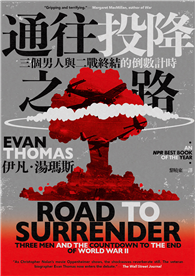In Rewriting Islam, Hasnul Insani Djohar examines how women writers of the Ummah, or Muslim religious community, portray Muslim women fighting for gender and social justice while living as minorities in prosperous countries. Focusing on the body of Muslimah writing that has emerged since the US invasion of Iraq in 2003, Djohar considers fiction such as Mohja Kahf’s The Girl in the Tangerine Scarf, Randa Jarrar’s A Map of Home, Laila Lalami’s Hope and Other Dangerous Pursuits, and G. Willow Wilson’s Alif the Unseen. Djohar also examines poetry, memoirs, and short stories. Together, these works depict the diversity of Muslimah identities and cultures worldwide. Operating within postcolonial and Islamic studies frameworks, Djohar investigates how these writers contribute to larger debates around gender and globalization--including justice for immigrants and refugees, who are often blamed for social problems rather than recognized as victims of US imperialism and transnational capitalist globalization. By way of close readings and careful attention to historical, cultural, and religious contexts, Djohar illuminates how Muslimah American writers decolonize justice and white sovereignty by elevating interconnectedness, spirituality, and sisterhood across diverse communities.
| FindBook |
有 1 項符合
Rewriting Islam: Decolonialism, Justice, and Contemporary Muslimah Literature的圖書 |
 |
Rewriting Islam: Decolonialism, Justice, and Contemporary Muslimah Literature 作者:Djohar 出版社:Ohio State University Press 出版日期:2024-08-22 語言:英文 規格:精裝 / 206頁 / 普通級/ 初版 |
| 圖書館借閱 |
| 國家圖書館 | 全國圖書書目資訊網 | 國立公共資訊圖書館 | 電子書服務平台 | MetaCat 跨館整合查詢 |
| 臺北市立圖書館 | 新北市立圖書館 | 基隆市公共圖書館 | 桃園市立圖書館 | 新竹縣公共圖書館 |
| 苗栗縣立圖書館 | 臺中市立圖書館 | 彰化縣公共圖書館 | 南投縣文化局 | 雲林縣公共圖書館 |
| 嘉義縣圖書館 | 臺南市立圖書館 | 高雄市立圖書館 | 屏東縣公共圖書館 | 宜蘭縣公共圖書館 |
| 花蓮縣文化局 | 臺東縣文化處 |
|
|
圖書介紹 - 資料來源:博客來 評分:
圖書名稱:Rewriting Islam: Decolonialism, Justice, and Contemporary Muslimah Literature
|










